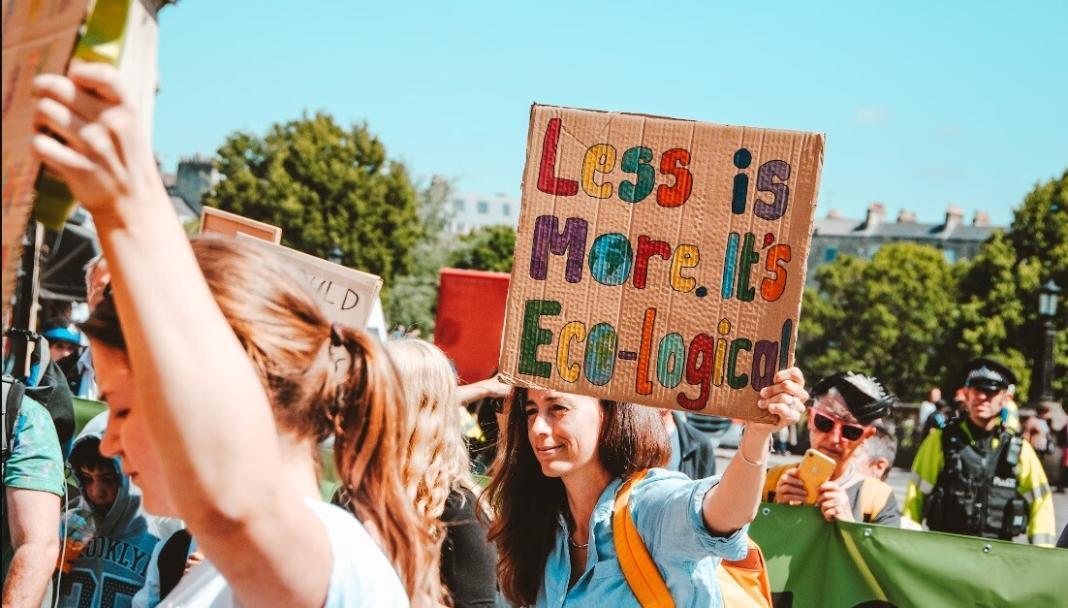In today’s world, environmental degradation has reached alarming levels, with issues like climate change, pollution, and resource depletion threatening the health of our planet. While governments and businesses play crucial roles in addressing these challenges, individual actions also have a significant impact. However, many people feel overwhelmed by the scale of the problem and unsure of how to make a meaningful difference. This article aims to empower readers by highlighting the importance of adopting a zero waste mindset and offering practical tips for cultivating sustainable habits. By taking small but impactful steps towards zero waste living, individuals can play a vital role in preserving the environment and creating a greener future for all.
In a world facing pressing environmental challenges, cultivating a zero waste mindset has never been more critical. From climate change and plastic pollution to resource depletion, the need for sustainable living practices is undeniable. However, transitioning to a zero waste lifestyle can seem daunting at first. In this article, we’ll explore the power of the zero waste mindset and how it can lead to lasting change for a greener future.
| Metric/Findings | Statistics | Source |
|---|---|---|
| Global Plastic Production | 300 million tons of plastic produced annually; 50% of it is single-use. | Gitnux (GITNUX) |
| Plastic Recycling Rate | Only 9% of global plastic waste has ever been recycled. | Gitnux (GITNUX) |
| Zero Waste Market Growth | Estimated to grow by 122.15% between 2021 and 2028. | Gitnux (GITNUX) |
| Economic Impact | A zero waste strategy could save 5-7% of the world’s GDP. | Gitnux (GITNUX) |
| Plastic Pollution | Approximately 8 million metric tons of plastic enter the ocean annually. | Gitnux (GITNUX) |
| U.S. Waste Production | The U.S. produces 21.5% of the world’s waste with only 4% of the global population. | Gitnux (GITNUX) |
| Disposable Razors Waste | Around 2 billion disposable razors are thrown away each year in the U.S. | Gitnux (GITNUX) |
| Household Food Waste | A family of four wastes an average of $1,500 a year on food. | Gitnux (GITNUX) |
| Marine Life Impact | 100,000 marine animals die annually from plastic entanglement. | Gitnux (GITNUX) |
| Publication Trends | Significant increase in zero waste research publications from 2011 to 2021. | MDPI (MDPI) |
| Leading Journals in Zero Waste Research | Journal of Cleaner Production, Resources Conservation and Recycling, Waste Management, and Sustainability. | MDPI (MDPI) |
| Top Regions for Zero Waste Research | China, USA, and Italy are the leading regions in zero waste research. | MDPI (MDPI) |
| Key Concepts in Zero Waste Research | Waste management, sustainability, circular economy, and sustainable development are the most important keywords. | MDPI (MDPI) |
Section 1: Understanding the Zero Waste Movement
The zero waste movement is about more than just reducing trash—it’s a philosophy that encourages individuals to rethink their consumption habits, minimize waste, and prioritize sustainability. According to the Environmental Protection Agency, the average American generates over 4 pounds of trash per day, much of which ends up in landfills or incinerators. By embracing the principles of zero waste living, we can reduce our environmental impact and conserve valuable resources for future generations.
- Over 292 million tons of municipal solid waste are generated annually in the United States (EPA).
- Only about 32% of waste is recycled or composted, leaving the majority destined for landfills (EPA).
Section 2: Adopting Sustainable Habits
Cultivating a zero waste mindset begins with adopting sustainable habits in our daily lives. Simple changes, such as using reusable bags, bottles, and containers, can significantly reduce our reliance on single-use plastics and packaging. Additionally, choosing products with minimal packaging and opting for bulk purchases can help minimize waste at the source. By making conscious choices about what we consume and how we dispose of it, we can contribute to a more sustainable future.
- Americans use approximately 100 billion plastic bags annually, most of which end up in landfills or oceans (Earth Policy Institute).
- Plastic bottles take around 450 years to decompose, leaking harmful chemicals into the environment in the process (Plastic Pollution Coalition).
Section 3: Reducing Food Waste
Food waste is a significant contributor to global warming, accounting for approximately 8% of greenhouse gas emissions worldwide. By meal planning, buying only what we need, and using up leftovers creatively, we can minimize food waste and save money in the process. Composting organic waste further reduces the environmental impact of food waste by diverting it from landfills and returning valuable nutrients to the soil.
- Roughly one-third of all food produced for human consumption is wasted globally, amounting to about 1.3 billion tons per year (FAO).
- Food waste emits methane, a potent greenhouse gas that is 25 times more effective at trapping heat than carbon dioxide (EPA).
Section 4: Embracing Minimalism
In a culture that glorifies consumerism and materialism, embracing minimalism can be a radical act of resistance. By decluttering our lives and focusing on the essentials, we can reduce our environmental footprint and find greater contentment and fulfillment. Minimalism encourages us to buy less, choose quality over quantity, and prioritize experiences over possessions.
- The average American household contains over 300,000 items, leading to clutter, stress, and environmental degradation (UCLA Center on Everyday Lives of Families).
- Decluttering and simplifying our lives can lead to reduced stress levels, increased happiness, and improved overall well-being (Psychology Today).
Section 5: Investing in Sustainable Products
Supporting companies that prioritize sustainability and ethical production is another crucial aspect of cultivating a zero waste mindset. Look for products made from renewable materials, such as bamboo, cork, or recycled plastic. Choose energy-efficient appliances and electronics that reduce energy consumption and lower your carbon footprint. By voting with our dollars, we can influence companies to adopt more environmentally friendly practices.
- The fashion industry is responsible for 10% of global carbon emissions and is the second-largest consumer of the world’s water supply (UN Environment).
- By 2025, the global market for eco-friendly products is projected to reach $4.5 trillion, reflecting growing consumer demand for sustainable alternatives (Grand View Research).
Section 6: Practicing Mindful Consumption
Mindful consumption is about being intentional and conscious about what we buy and how we use resources. Before making a purchase, ask yourself if you truly need it and consider its environmental impact. Choose products that are durable, repairable, and made to last. Repair and repurpose items whenever possible instead of immediately replacing them. By being mindful of our consumption habits, we can avoid unnecessary waste and make more sustainable choices.
The average American generates over 1,600 pounds of waste each year, much of which is avoidable through mindful consumption (EPA).
Repairing and extending the life of products by just one year could reduce carbon emissions by 18 million tons annually in the United Kingdom alone (WRAP).
Section 7: Educating and Inspiring Others
One of the most powerful ways to promote the zero waste mindset is by educating and inspiring others to join the movement. Share your knowledge and experiences with friends, family, and colleagues, and encourage them to adopt sustainable habits in their own lives. Lead by example and demonstrate the positive impact of zero waste living on the environment and our well-being. By spreading awareness and building a community of like-minded individuals, we can create a ripple effect of positive change.
- Social norms and peer influence play significant roles in shaping behavior, making it essential to lead by example and inspire others to adopt sustainable habits (Psychological Science).
- Individuals who are exposed to environmental messages and education are more likely to adopt pro-environmental behaviors and advocate for policy change (Environment and Behavior).
Section 8: Overcoming Challenges and Obstacles
While the journey to zero waste living is rewarding, it is not without its challenges. From social pressure and convenience to lack of infrastructure and accessibility, there are many obstacles that can make sustainable living difficult. However, by staying committed to our values and seeking creative solutions, we can overcome these challenges and continue making progress towards our zero waste goals.
- Social norms and societal expectations can influence our behavior and make it challenging to break free from conventional consumption patterns (Journal of Environmental Psychology).
- Lack of access to recycling facilities, composting programs, and sustainable products can pose barriers to zero waste living, especially in rural and low-income communities (NRDC).
Section 9: Celebrating Progress and Successes
Finally, it’s essential to celebrate the progress we’ve made and the successes we’ve achieved on our zero waste journey. Whether it’s reducing our waste, inspiring others to make positive changes, or advocating for policy reform, every action we take makes a difference. By acknowledging our accomplishments and sharing them with others, we can stay motivated and continue striving towards a more sustainable and equitable future for all.
Small actions, such as switching to reusable bags or reducing food waste, can have significant impacts when multiplied across millions of individuals (UN Environment).
Celebrating milestones and successes boosts morale and reinforces positive behaviors, increasing the likelihood of long-term behavior change (American Psychological Association).
Conclusion: Embracing the Zero Waste Mindset for a Sustainable Future
In conclusion, cultivating a zero waste mindset is not just about reducing trash—it’s about reimagining our relationship with the planet and embracing sustainable living practices that benefit both people and the environment. By adopting a zero waste mindset, we can minimize waste, conserve resources, and create a more resilient and equitable world for future generations. Together, let’s embrace the challenge of living more sustainably and work towards a greener, healthier, and more prosperous future for all.







